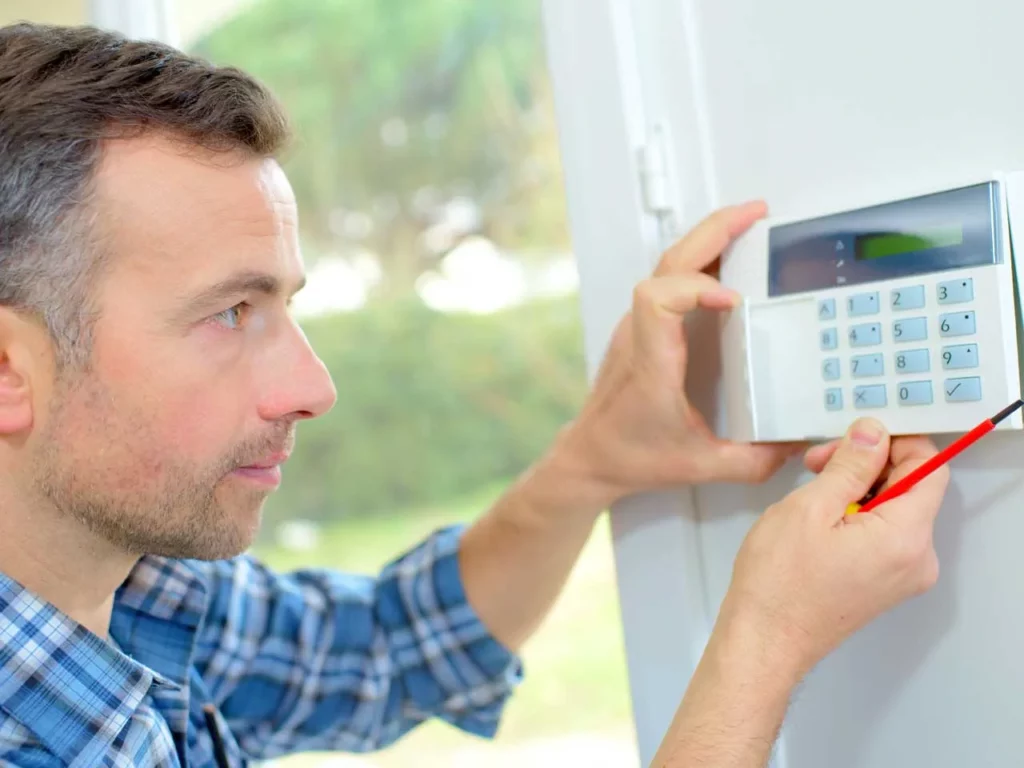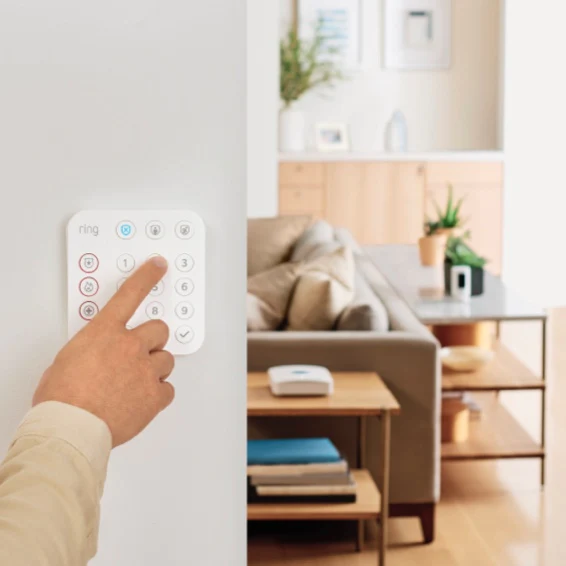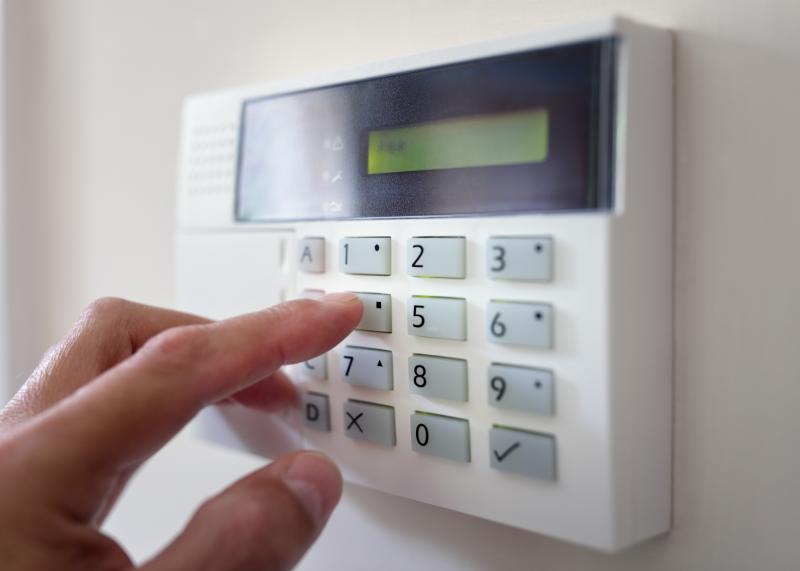No, the house alarm will not go off if its battery dies, as it won’t have the power to function and trigger the alarm. In most cases, if the battery dies, the house alarm might malfunction and fail to go off.
House alarms play a vital role in ensuring the security of our homes. They stop possible intruders and make homeowners feel safe.
The importance of house alarms in securing our homes cannot be overstated. They act as a first line of defense, alerting us and our neighbors of any unauthorized entry or suspicious activity.
However, a common concern for homeowners is what happens if the alarm’s battery dies.
In this article, we will clarify whether the alarm will stop if the battery dies, the consequences of a dead house battery, factors affecting the lifespan of the house alarm battery, how to prevent the house alarm battery failure and finally, and provide homeowners with a comprehensive understanding of their home security systems.
Will House Alarm Go Off If the Battery Dies?
The functioning of a house alarm when its battery dies, can vary based on the system’s design. Sometimes, if the battery is the primary power source, the alarm might not operate properly.
However, many modern alarm systems include backup batteries to ensure continued functionality during power interruptions or battery failures.
It’s recommended to refer to the specific alarm system’s documentation or contact the manufacturer for accurate information on how the system responds when its battery is depleted.
Regular maintenance and following manufacturer guidelines for battery replacement can contribute to the reliable operation of the alarm system.
Consequences of a Dead House Alarm Battery

A dead house alarm battery can lead to critical security vulnerabilities. These batteries often become depleted due to age, power outages, or neglect in maintenance.
When a house alarm battery dies, the following consequences make your home unsecured.
Loss of Functionality
A dead alarm battery can lead to the complete loss of functionality in the alarm system. Without a functioning power source, the system may not respond to triggers or alerts, leaving the property vulnerable to unauthorized access.
Compromised Security
The primary purpose of a house alarm is to provide security. A dead battery compromises this security by rendering the system ineffective. Intruders might take advantage of the situation, as there won’t be any alarms or alerts to deter them.
Lack of Notifications
Many alarm systems can’t notify homeowners or monitoring services if their battery is dead. This means residents might remain unaware of any security breaches or emergencies.
Disruption of Monitoring Services
A dead battery can disrupt communication between your system and the monitoring center if you have a monitoring service. This prevents them from being promptly informed about incidents.
Delayed Response
In cases where backup batteries are absent or also dead, the alarm might not trigger during power outages. This could delay response from authorities during emergencies.
Risk of False Alarms
A low or dead battery could result in false alarms, where the system may go off unexpectedly due to unstable power. This can lead to inconvenience for homeowners and unnecessary responses from authorities.
Maintaining a healthy alarm battery is vital for ensuring the reliability and effectiveness of your security system.
Regular checks, adhering to replacement schedules, and staying informed about your system’s capabilities are crucial to preventing these consequences.
Factors Affecting the Lifespan of House Alarm’s Battery
Here are the factors that can affect the lifespan of a house alarm’s battery, along with explanations:
Battery Type and Quality
The type and quality of the battery used in the house alarm play a crucial role. High-quality batteries designed for alarm systems tend to have longer lifespans than generic or low-quality batteries.
Usage Frequency
How often the alarm is triggered, and the system is active can impact battery life. Frequent alarms or longer periods of system activity can lead to faster battery drain.
Power Outages
If the alarm’s backup battery is frequently utilized during power outages, its lifespan may be reduced. Repeated discharging and recharging can gradually degrade the battery’s capacity.
Temperature Extremes
Very hot and cold temperatures can influence battery chemistry and performance. High temperatures can accelerate chemical reactions, leading to faster battery deterioration.
Maintenance and Testing
Regular alarm system maintenance and testing can help identify battery issues early. Neglecting maintenance, such as not replacing a failing battery promptly, can lead to shorter battery life.
Proper Installation
Correctly installing the battery and ensuring proper electrical connections are essential. Poor installation can result in inefficient charging and discharging cycles, impacting the battery’s lifespan.
Battery Capacity vs. System Demands
Ensuring the battery’s capacity is sufficient to meet the system’s demands is vital. An underpowered battery may experience frequent deep discharges, which can reduce its lifespan.
By considering and managing these factors, homeowners can optimize the lifespan of their house alarm’s battery and maintain the system’s reliability.
How to Prevent the House Alarm Battery Failure

Regular battery checks and replacements are essential to ensure reliable home security. Besides, there are multiple tips to prevent the house alarm battery failure and enhance its lifespan.
Do Regular Inspections
Conduct routine visual checks of the alarm system’s battery to ensure it’s in good condition. Look for signs of corrosion, leaks, or other physical damage.
Follow Manufacturer Guidelines
Adhere to the manufacturer’s recommendations for battery replacement intervals. Replace the battery within the specified time frame, even if it functions normally.
Test Backup Batteries
If your system has backup batteries, perform periodic tests to verify their functionality. This ensures they will work during power outages or main battery failures.
Environmental Considerations
Keep the alarm system and its battery in a suitable environment. Extreme temperatures and humidity can accelerate battery deterioration.
Use Quality Batteries
Always use the recommended battery type and quality as specified by the manufacturer. Substituting with non-approved batteries could lead to compatibility issues or even damage.
Professional Maintenance
Consider getting a professional technician to check and maintain your alarm system, including the battery. They can identify issues early and provide expert guidance on proper maintenance.
By implementing these preventive measures, you can significantly reduce the risk of house alarm battery failure and ensure that your security system remains reliable when needed.
FAQs
Can I replace the alarm system’s battery myself?
Yes, you can usually replace the battery, but follow the manufacturer’s instructions to avoid issues.
How long does a house alarm battery usually last?
Alarm system batteries typically last around 3 to 5 years, depending on usage and type.
What if the backup battery also fails during a power outage?
If both main and backup batteries fail, the alarm might not work; some systems have additional backup options.
Will my monitoring company know if the battery dies?
Some monitoring companies can be alerted to battery issues, but it’s best to check with your provider.
Can a dead battery affect other alarm functions?
Yes, a dead battery can impact communication and sensor performance.
How can I prevent battery-related problems?
Regularly check the battery status and replace it according to the manufacturer’s guidelines.
Do all alarms have backup batteries?
Not all alarms have backup batteries, so confirm this feature with the manufacturer.
Can I use any battery as a replacement for the House alarm?
No, you should not use any battery to replace a house alarm. It’s important to use the specific type and model of battery recommended by the alarm manufacturer to ensure proper functioning and safety.
How many hours does an alarm battery last?
The lifespan of an alarm battery typically ranges from 4 to 5 hours, providing backup power in case of a power outage or battery failure.
Can I recharge my alarm battery?
No, most alarm batteries are not designed to be recharged. They are typically sealed lead-acid batteries that need replacement when depleted.
Conclusion
The house alarm battery plays a crucial role in the security system’s effectiveness. If the battery dies, the alarm may not go off in case of an emergency, leaving the home vulnerable.
It is important to regularly check and replace the battery to ensure the alarm is functioning properly.
In case of a battery failure, contacting the alarm system provider or a professional technician is recommended. It is advised to follow the manufacturer’s guidelines and conduct regular maintenance checks to prevent battery failure.











